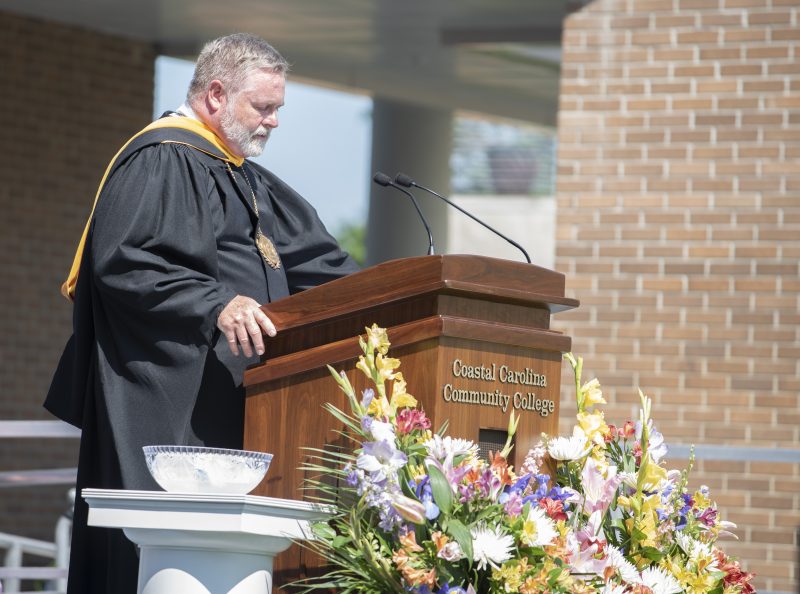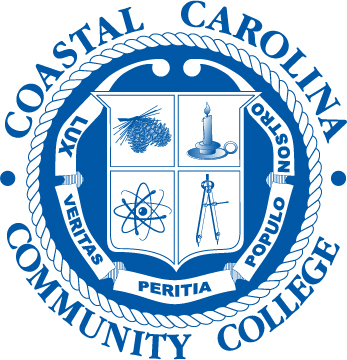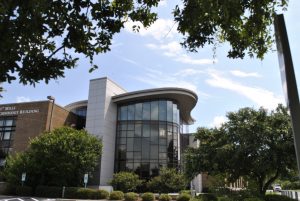 More than 60 years ago, futurist author Alvin Toffler wrote a national bestselling book, in which he predicted that the pace of technological change would continue to escalate at an ever increasing rate. He also postulated that the ten-year strategic plans which were the “norm” in the 1970’s and 80’s would soon be replaced by projections of five years…or even fewer. Although many of his projections did not “come true” for nearly 30 years, his basic tenet has unquestionably been validated.
More than 60 years ago, futurist author Alvin Toffler wrote a national bestselling book, in which he predicted that the pace of technological change would continue to escalate at an ever increasing rate. He also postulated that the ten-year strategic plans which were the “norm” in the 1970’s and 80’s would soon be replaced by projections of five years…or even fewer. Although many of his projections did not “come true” for nearly 30 years, his basic tenet has unquestionably been validated.
Beginning with its 1995-96 effort, Coastal Carolina Community College adopted a radically different approach to its strategic planning, one that involved devoting a lot of time, thought, and discussion with the Board of Trustees, faculty, staff, and student leaders. The goal was to reach consensus on a set of strategic themes, which would reflect the College’s fundamental values as well as its assessment of the most important needs of the students and the community we serve. Four strategic planning themes emerged: Educational Quality, Technology, Teamwork and Partnerships, and Economic Development.
Three of those four themes have continued to drive this College for more than 20 years. The fourth, “Technology,” became such a fundamental part of the daily operation of the College that it was no longer viewed as a “planning theme.” During the 2005-06 strategic planning process, “Technology” was replaced with “Student Success,” reflecting the College’s growing commitment to finding ever more effective ways to help students achieve their educational and career goals.
Student Success, focused on engaging students in formulating, revising, and achieving their educational goals has become the more comprehensive and thematic planning focus of the institution. Student learning, in particular learning how to learn using a variety of learning resources, is the fundamental tool for helping students fulfill their dreams.
The environment for Student Success is evident throughout the institution. A recent team of peer reviewers from the Aspen Institute stated, “The institutional commitment to supporting students is amplified by the efforts of faculty and staff who are dedicated to serving students and ensuring they are successful.”
The strategic planning process involving our key stakeholders, enhanced by the insights of the Aspen Institute’s team of community college peer reviewers, has strengthened our commitment to our four themes. We are now even more confident that our “Strategic Themes” of Educational Quality, Student Success, Teamwork and Partnerships, and Economic Development are the best “lens” for us to use, in visualizing and adopting meaningful goals and objectives for Coastal Carolina Community College.
Sincerely
David L. Heatherly
President
 Coastal Carolina Community College evolved out of a need to provide higher education and training to the people of Onslow County, to improve their quality of life, to help them achieve their dreams, and to make this community a better place to live.
Coastal Carolina Community College evolved out of a need to provide higher education and training to the people of Onslow County, to improve their quality of life, to help them achieve their dreams, and to make this community a better place to live.
As early as 1957, the State of North Carolina recognized the need to offer additional post-high school education and training for its residents. By 1962, the General Assembly approved the development of twenty industrial education centers. The next year, the Onslow County Board of Education and the Superintendent of Public Schools, Mr. J. Paul Tyndall, asked the Onslow County Commissioners to purchase forty acres on U.S. Highway 17 to establish an industrial education center as a satellite of the Lenoir County Technical Institute.
The untiring efforts of Representatives Hugh A. Ragsdale and William D. Mills, and Senator Carl Venters led to the appropriation from the 1965 General Assembly for a separate institution for Onslow County. The North Carolina State Board of Education approved the Onslow Industrial Education Center on July 1, 1965.
The first curriculum classes—Brick Masonry, Welding, Auto Mechanics, Air Conditioning and Refrigeration, and Licensed Practical Nursing—were offered during the evening in September 1965.
Early on, the rising enrollment at the Industrial Education Center made it clear that the post-secondary education needs in the area were wide and varied. In the fall of 1965, the people of Onslow County voted by referendum for a seven-cents-per-one-hundred-dollars ad valorem tax increase to support the Industrial Education Center. The Board of Trustees, realizing that a technical institute could more adequately provide vocational and technical education opportunity for the area, requested that the State Board of Education grant technical institute status to the center. Onslow Industrial Education Center became Onslow Technical Institute on
May 4, 1967.
Once again, the rapidly increasing educational demands on Onslow Technical Institute encouraged the Board of Trustees to seek new status. Just between the years 1968 and 1969, student enrollment grew from 281 to 1,142. Onslow Technical Institute was granted community college status July 1, 1970, and became Coastal Carolina Community College.
In 1972, seventy-five acres on Western Boulevard were secured for the new community college. That same year, with the dedication of the Hugh A. Ragsdale Building, the Board of Trustees started to relocate the College to its new campus on Western Boulevard. For several years thereafter, the College operated on a split campus until relocation was completed in 1978. The timing couldn’t have been better because 1978 was the first year that Coastal’s enrollment exceeded 3,000 students.
To fund the 1970 master plan of Coastal, which included ten buildings, a $4 million bond issue was proposed. In November 1974, 58 percent of Onslow County voters approved the bond issue. Ten buildings would be constructed over the next seventeen years.
From 1963 to 1988, under the leadership of Dr. James Leroy Henderson, Jr., the Onslow County Industrial Education Center grew from one full-time employee, 325 extension students, and 40 acres on an abandoned prison camp to a community college with 200 employees, fifty-seven curricula, 3,385 curriculum students, 3,795 extension students, and a 98-acre main campus, with education units at Marine Corps Base Camp Lejeune and Marine Corps Air Station New River.
Dr. Henderson was the first and only President of Coastal until his retirement on June 30, 1988. His guidance, vision, and extraordinary commitment to the College over a twenty-five year period helped to make the institution what it is today. Because of his steadfast dedication and loyalty to this institution for a quarter of a century, the College bestowed on Dr. Henderson the title, President Emeritus.
In 1988, Dr. Ronald K. Lingle became the College's second President. Under Dr. Lingle’s leadership, Coastal re-committed itself to educational excellence through a series of themes—educational quality, student success, investment in technology, promotion of economic development, and commitment to teamwork and partnerships. Those themes became the benchmark on which the College would measure its value and worth.
Under Dr. Lingle’s leadership, Coastal assumed a greater role in the economic development of the community, helping to diversify the local labor market and pointing out the county’s best assets, including the community college, to businesses interested in relocating here.
His understanding of and belief in partnerships has strengthened the College's relationship with Marine Corps Base Camp Lejeune and Marine Corps Air Station New River, as well as its relationship with the University of North Carolina Wilmington (UNCW).
In 1995, Coastal and UNCW formed an articulation agreement, which guarantees that Coastal Associate in Arts and Associate in Science graduates who have maintained at least a “B” average will be admitted to UNCW as juniors. Also, Coastal, UNCW, Onslow County Schools, and Marine Corps Base Camp Lejeune have developed a partnership to offer “two plus two” teacher training for elementary education. Onslow County citizens can complete all of their coursework on Coastal’s campus, and Onslow County Schools has an invaluable source of additional—and badly needed—certified teachers.
Coastal takes great pride in its partnership with the local military community, which has grown tremendously over the years and has expanded in new directions. Forty to fifty percent of the students enrolled at Coastal are active duty military and their family members. The College offers eight-week semester courses on Marine Corps Base Camp Lejeune and on Marine Corps Air Station New River to accommodate the rigorous and unpredictable military work schedule. More than six hundred Marines, Sailors, and their family members enroll in Coastal’s fifty college transfer classes offered on the base and on the air station. Hundreds of Marines and Sailors enroll in online classes while they are deployed and when their work schedule prevents them from taking traditional classes. Coastal’s Division of Continuing Education serves more military personnel than any of the other fifty-seven community colleges in the state.
As the number of students has grown at the College, so has the need to house those students. In 1991, the College opened the new A.D. Guy Business Technology Building. The building was named in honor of Senator A.D. Guy for his many years of long, continuous, and outstanding service to the College. Five years later, the College celebrated the new Kenneth B. Hurst Continuing Education Building. Mr. Hurst served as a College Trustee for twenty-three years.
In 2000, the approval of the state’s largest higher education bond referendum of $3.1 billion gave Coastal $19.4 million to upgrade its infrastructure and to build a new Math and Science Technology Building that would accommodate the growing demand for science classes and labs. This building opened spring semester 2007. In 2016, the building was renamed for W.D. "Billy" Mills, a prominent former Senator whose efforts contributed to the early development of the campus.
Since 2007, the College has focused on enhancing the overall campus appearance in order to create a physical environment conducive to student engagement and learning. Within the available resources, the College has added covered walkways, provided outside gathering spaces with enhanced landscaping, provided vehicular and pedestrian signage, renovated the College cafeteria, and installed wireless internet access throughout the campus.
The Culinary/Hospitality Building, located 1.2 miles south of campus opened in 2016, providing state-of-the-art facilities for the Culinary Arts and Hospitality Management programs. The Institutional Support Services Building, funded by Onslow County, opened in January 2017.
For several years, the College has committed resources for sustaining a safe and secure campus environment in support of enhanced learning and student success. The institution's focus on crisis communication and security includes installation of a public address system, emergency towers, lockable classroom and lab doors, emergency phones, motion sensitive lighting, and surveillance cameras.
In January 2017, upon Dr. Lingle's retirement, Mr. David L. Heatherly was named as the third President of Coastal Carolina Community College. Furthermore, the Board of Trustees bestowed the recognition of President Emeritus to Dr. Ronald K. Lingle for his years of outstanding service. Mr. Heatherly, having completed his 41st year at Coastal, is ready for the challenge of leading Coastal in the new millennium. Under his leadership, Onslow Early College High School was opened on the campus in fall 2017. This initiative is a partnership between Onslow County Schools and Coastal Carolina Community College.
Coastal's unwavering commitment to educational quality and student success has made its transfer students and its graduates some of the most competitive individuals in higher education and in the workforce.
 More than 60 years ago, futurist author Alvin Toffler wrote a national bestselling book, in which he predicted that the pace of technological change would continue to escalate at an ever increasing rate. He also postulated that the ten-year strategic plans which were the “norm” in the 1970’s and 80’s would soon be replaced by projections of five years…or even fewer. Although many of his projections did not “come true” for nearly 30 years, his basic tenet has unquestionably been validated.
More than 60 years ago, futurist author Alvin Toffler wrote a national bestselling book, in which he predicted that the pace of technological change would continue to escalate at an ever increasing rate. He also postulated that the ten-year strategic plans which were the “norm” in the 1970’s and 80’s would soon be replaced by projections of five years…or even fewer. Although many of his projections did not “come true” for nearly 30 years, his basic tenet has unquestionably been validated.

 Coastal Carolina Community College evolved out of a need to provide higher education and training to the people of Onslow County, to improve their quality of life, to help them achieve their dreams, and to make this community a better place to live.
Coastal Carolina Community College evolved out of a need to provide higher education and training to the people of Onslow County, to improve their quality of life, to help them achieve their dreams, and to make this community a better place to live.